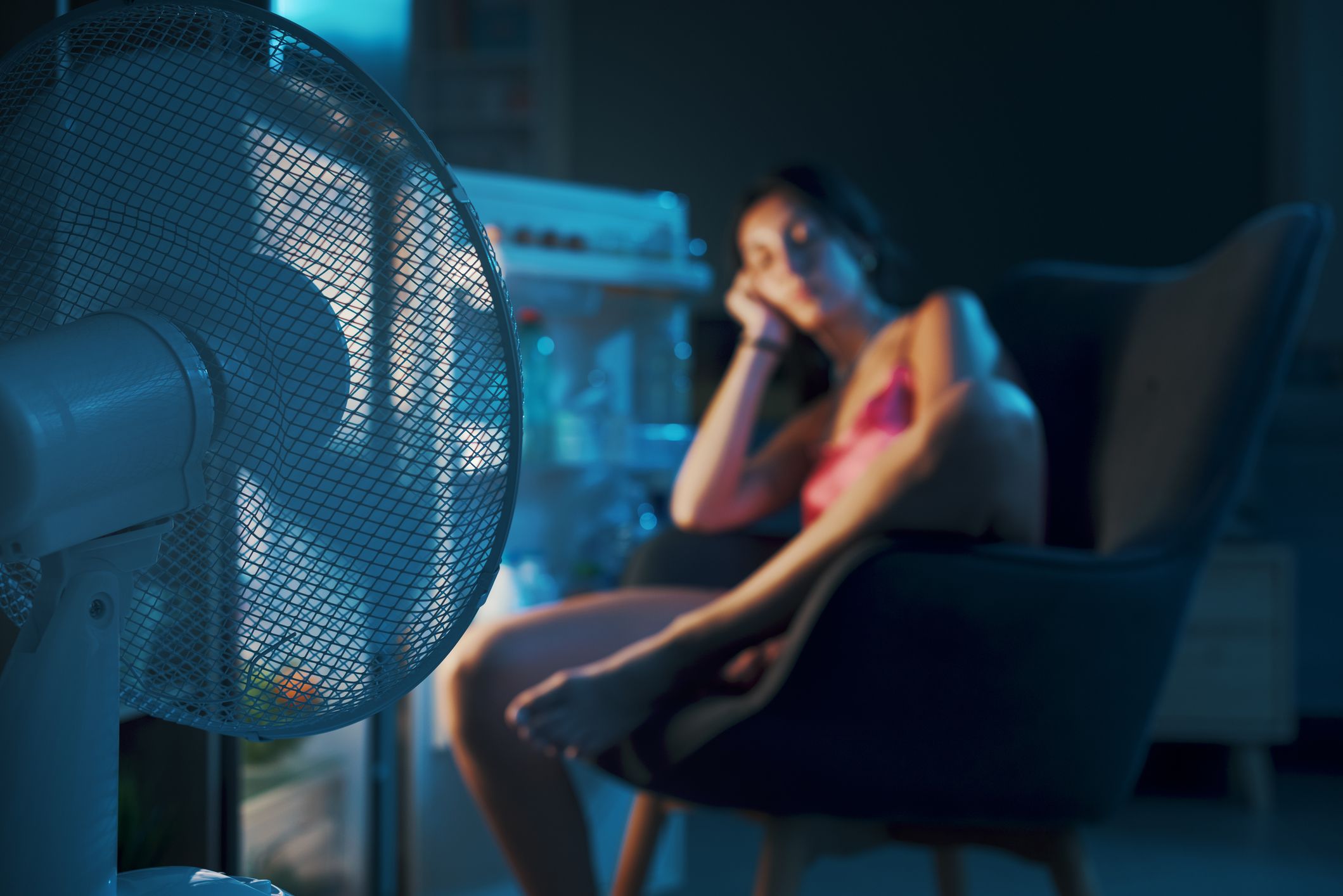Menopause is a normal part of aging that brings about various physical and emotional changes. The most common symptoms during menopause are vasomotor symptoms (VMS), better known as hot flashes and night sweats. These are sudden episodes of feeling overly warm or hot, skin flushing, sweating, and increased heart rate. VMS can occur in response to a trigger (such as warm environments, spicy food, and many others) or for no apparent reason at all.
Menopause, VMS, and mental health
Menopause and VMS can be disruptive to a person’s life. They can also be disruptive to a person’s mental and emotional health:
- Emotional and cognitive changes. Mood swings, low moods, an increase in stress and anxiety, problems concentrating, problems with memory, and problems sleeping have all been associated with menopause and VMS.
- Mood disorders. Menopause and VMS have been associated with a higher risk for anxiety and major depression.
- Changes to quality of life. Quality of life refers to a person’s overall wellbeing—the balance of positive and negative elements in their life. Health, safety, comfort, relationships, and sense of control are all important factors. Menopause and VMS can affect quality of life in many ways. For example, a person may struggle with the fact that sexual intimacy is no longer desirable or comfortable. Or they may find themselves fatigued because night sweats are interfering with sleep.
Why do these changes occur?
Changes in moods, emotions, and thinking during menopause are often attributed to the declining estrogen levels that occur during this phase of a person’s life. While estrogen is known to play a role in emotional balance and cognition, its role in these changes during menopause is not completely understood.
Prioritizing mental health during menopause
Menopause is a different experience for every person, but everyone experiencing menopause should be working with a healthcare provider. There are strategies that can make the process easier and enable a person to enjoy a better quality of life during menopause.
Treatment for VMS and other menopause symptoms
Experiencing fewer episodes of VMS may lessen the impact that VMS has on your emotions and mental health. There are several medications that can help reduce and manage VMS and other symptoms that occur during menopause, including menopausal hormone therapy (MHT) as well as non-hormonal medications. Avoiding triggers and practicing cooling techniques are other important steps.
Healthy lifestyle changes
People are advised to eat a nutritious diet, stay physically active, and maintain a healthy weight during menopause. They are also advised to avoid unhealthy habits, like smoking and consuming too much alcohol. These lifestyle changes may help a person manage VMS. They will also help improve other areas of health that should be an important focus during menopause, like cardiovascular health and the health of the bones.
Social support
Keep in touch with friends and loved ones, especially people who you can speak to honestly and openly. Also consider connecting with other people who are experiencing menopause, who know what the experience can be like. Good relationships are beneficial to mental and emotional health. Relationships are also something that can decline during menopause. For example, a person might be more inclined to stay home if they are concerned about experiencing an episode of VMS in a social setting.
Take steps to reduce stress
Menopause can be stressful, and stress may worsen symptoms. Mindfulness activities like meditation, yoga, and breathing exercises can help reduce stress. So can prioritizing time to relax and do things that you enjoy.
Counseling and therapy
Also consider working with a healthcare provider who specializes in mental health. Cognitive behavioral therapy (a type of talk therapy) has been found to help with VMS, problems sleeping, stigma about menopause, and concerns about sexual intimacy.






